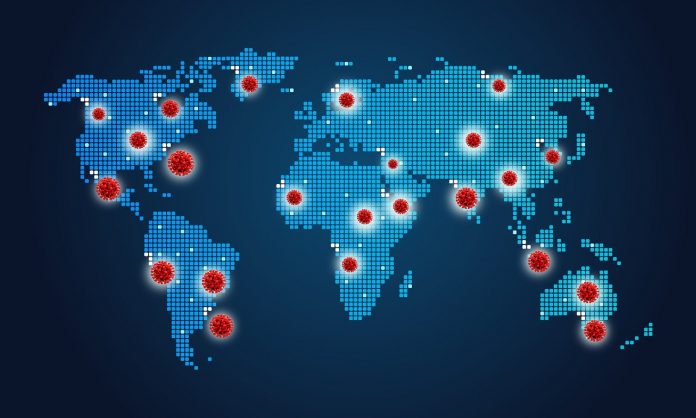The Bubonic Plague of the 1340s that wiped off a third of humanity quite possibly did away with feudalism and could be partially credited with triggering the rise of capitalism. Since it cut off the population significantly, it left ample bargaining power in the hands of the survivors, affording them the liberty to negotiate wages. In England as a last effort to protect the withering upper-class institutions, a law for ceiling the upper limit for wages was set, however, strong peasant revolt led to the tumbling of the feudal system altogether. A minor recession was followed by surging economic growth in Europe. An increase in wages led to an increase in spending capacity and higher consumption rates. More and more people were drawn to the market economy, as the trade networks became widespread.
Almost 700 years later, capitalism is not as liberating as it once proved to be. Another economic revolution might be on the brink of this ongoing pandemic. A socialist one perhaps.
Ever since countries started falling down the chutes into the hollows of a pandemic; economists, researchers, and scientists have been plagued with questions of how this could have been avoided; who should be held responsible; and how far are we yet to fall?
The answer to all of them is a resounding accusation pointing directly at us. In a global bid at profit maximization, squeezing out the maximum interest and securing the largest surplus, human welfare has been left far behind.
The virus that has us all in havoc belongs to a family of coronavirus, (including SARS and MERS) that we have been familiar too. However, there was never any inclination to research and develop a vaccine for it by pharmaceutical companies since it did not invite profit. Hence here we are, without a cure for an illness that could have very well been avoided. Even now, pharmaceuticals have coronavirus therapies under development, but the prospect of grabbing the market with their own COVID-19 therapy keeps them from pooling their collective resources for a more advanced and quick solution. This situation definitely busts the myth around the farce that capitalism fuels innovation.
The only reason that Italy is still standing is because of its universal single-payer health care system, which ensures that no matter the job or income level, they are entitled to the best treatment possible. While on the other hand, countries with rigorously privatized healthcare systems, with the motto that ‘you need to earn the right to healthcare with work and income’ are understaffed, lacking in resources and are faltering on the face of a pandemic.
What happens to the overpopulated developing world that is not only understaffed, lacks resources and has irregularly distributed healthcare but is also home to a capitalistic set-up that profits from such scarcity? Would it survive a pandemic of this magnitude?
Mark Zandi, chief economist at Moody’s Analytics says “2020 is a real inflection point.” One would have to live under an unusually large rock to not realize the impending recession that we are walking into. Last year, Bloomberg Economics created a model to determine the odds of America entering into a recession. The chances now stand at 100 percent.
In other words, what we are looking at is an extraordinary number of layoffs, a situation of excruciating unemployment, mass hysteria and among other things a severe political crisis as governments scramble to rebuild what was lost.
As India witnesses an overwhelming migration of laborers, the largest in recent history, a precursor of the fate that so many hopeless, clueless men and women are walking towards, the privilege of the ones who can afford to ‘stay at home’ becomes blatantly evident. What is the utility of coming out of a pandemic if you slide back down into poverty?
Countries with viable social safety nets may soften the blow of the harsh recession. Norway, for instance, is giving all workers affected by the slowdown a generous paid leave. The United Kingdom and Denmark are putting forward expansive relief packages, covering workers out of work.
In countries where such systems don’t exist, this is a one time opportunity to develop them. A great challenge awaits us at the end of this tunnel. Seven hundred years ago, the end of a pandemic resulted in a revolution, sweeping aside one economic order to make way for another. Will the survivors of this pandemic pool their collective discontentment to stand up to an order that has repeatedly overlooked them?
The views and opinions expressed in this article are those of the author.

The author is pursuing her Bachelors in Political Science at Jadavpur University, Kolkata, India.


